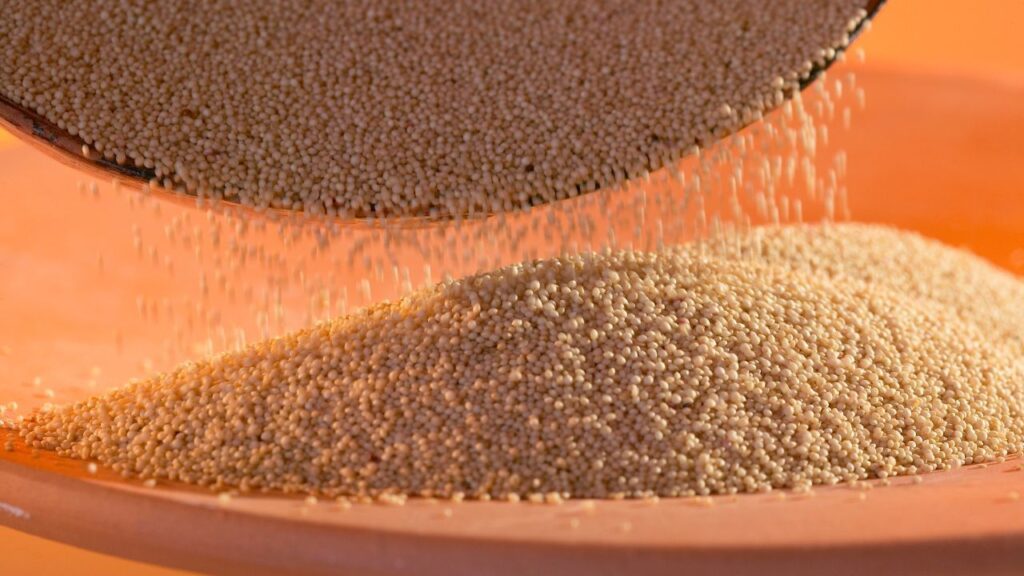In earlier times, people consumed various grains such as jowar, bajra, corn, and finger millet, which were rich in nutrients and beneficial for health. However, in modern lifestyles, whether in rural or urban settings, wheat roti has become the staple in most Indian households. If you find it challenging to incorporate different grains into your diet, consider adding amaranth flour (rajgira) to your meals. Not only can you prepare roti with this flour, but it can also be used in delicious dishes like laddus, halwa, and chikki.
Amaranth is a nutrient-packed grain that is high in protein, iron, calcium, manganese, fiber, phosphorus, as well as vitamins A, B, and C, alongside other antioxidants. Incorporating amaranth flour into your diet can provide relief from numerous health issues. Let’s explore the benefits of adding amaranth flour to your daily diet.
Control Blood Sugar Levels
Amaranth flour is especially beneficial for individuals with diabetes. It aids in managing blood glucose levels, thereby reducing the risk of blood sugar spikes after meals. Including amaranth roti in your diet can be a smart choice for maintaining stable blood sugar levels.
Strengthen Bones
Rich in calcium and other minerals essential for bone health, amaranth flour can help strengthen your bones, teeth, and nails. Incorporating roti or laddus made from this flour into your diet can enhance your skeletal health significantly.
Assist in Weight Management
If you’re looking to lose weight, using amaranth flour instead of wheat flour can be advantageous. It contains a good amount of fiber and protein, keeping you satiated for longer and reducing the likelihood of overeating. This can contribute to a healthier weight loss journey while promoting muscle strength.
Ideal for Gluten-Sensitive Individuals
Amaranth flour is a fantastic option for those who are allergic to gluten. Many individuals experience discomfort, bloating, and pain after consuming wheat products. Since amaranth is gluten-free, it can safely replace wheat flour in their diets without causing adverse reactions.
Boost Immunity
With a rich profile of vitamins and minerals, amaranth flour helps enhance the immune system. Regular consumption can protect against free radicals, thus reducing susceptibility to various illnesses and enhancing overall health.
Nutritional Comparison Table
| Nutrition Component | Amaranth Flour (100g) | Wheat Flour (100g) |
|---|---|---|
| Calories | 371 | 364 |
| Protein | 13.4g | 10.3g |
| Fiber | 7.0g | 2.7g |
| Calcium | 159mg | 15mg |
| Iron | 2.95mg | 0.56mg |
In conclusion, incorporating amaranth flour into your diet not only diversifies your nutrient intake but also offers a multitude of health benefits. From managing diabetes to strengthening bones and boosting immunity, this ancient grain continues to remain relevant in modern nutrition.
